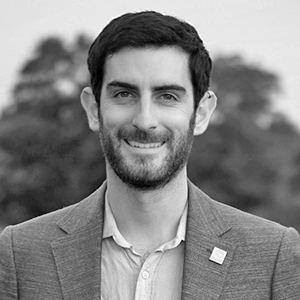Supporting LGBTQ+ Professionals – By Steven Roe CEcol MCIEEM
BLOG
LGBTQ+ ecologists must be important to CIEEM right? They are part of the diversity and equality string to the organisation’s bow and are one of the groups that may be most likely to need support from their peers. And yet we see no events aimed at such members, no online or printed resources. When I pointed out to a member of CIEEM staff less than two years ago that this was the case and that I thought there should be some sort of online presence in the form of a webpage the response was “No, I don’t think we do”. I’m glad to report that the view of that has changed within the organisation and that CIEEM are proactively looking into this at the moment, hence this blog article.
Did you know, for example, that CIEEM has joined forces with the Landscape Institute, Design Council and Institute of Place Management to create Rainbow Places, a cross-industry LGBTQ+ and allies networking group. Rainbow Places will provide a platform for people to have conversations around their experiences, to develop and implement ideas of how to make the industry more inclusive, to raise awareness and visibility, to champion role models and ‘proud’ practices already providing inclusive workplaces, and to lead by example in building a network with LGBTQ+ professionals and allies across sectors.
Why the Launch?
Well, unfortunately there is still a need to support the industry’s LGBTQ+ workforce. Stonewall published in their 2018 LGBT in Britain – Work Report that:
“LGBT+ people who feel able to bring their whole selves to work have increased energy, better performance and stronger relationships with their peers. The more you’re forced to be someone else or hide who you are, the more your happiness and performance at work will be affected.”
I’ve been lucky in my ecology career so far. As an openly gay man the company I work for has been incredibly supportive, and they agreed last year with myself and two other LGBTQ+ colleagues that we needed an in-house LGBTQ+ and allies network. When a member of staff was subjected to discrimination on site by contractor staff, things were escalated very quickly to ensure it was clear that such behaviour would not be tolerated by our staff. Not everyone is so lucky. I know of freelance ecologists who have been working on site supervising works and have either been subjected to discrimination or have had to hide who they really are. These members of the ecology profession, particularly those working in isolation, need our support.
Our in-house network has been really well received and is introduced with additional information in our company induction pack explaining that the network exists and who people can turn to in confidence. Our instant messaging service has a private network for LGBTQ+ members of staff for keeping in touch and for anyone who doesn’t feel comfortable talking face to face. We’ve had social events (any excuse for an afterwork drink!), created resources on our system for all members of staff who want to become allies or wish to find out more and we regularly post information about important LGBTQ+ events and awareness days to maintain visibility. One of our landscape architect colleagues has been heavily involved in the formation of Rainbow Places. I would encourage any ecology company or department large enough to engage in the process of setting up an in-house network and for those in smaller companies to reach out to other LGBTQ+ people in the industry online.
The success of Rainbow Places for ecologists will depend on how much engagement CIEEM puts in but it also needs YOU to engage as an individual. Minority groups who are not immediately visible will need to speak up and be more vocal about who we are. This can feel irritating to colleagues; what does my sexuality or heritage have to do with my career as an ecologist? Absolutely nothing. But our visibility will both acknowledge that the diversity already exists within the CIEEM membership and inspire a new generation of ecologists. Show your support either as an LGBTQ+ ecologist or as an ally, and sign up using this form to show your support:
http://web.landscapeinstitute.org/cn/a4dxz/rainbowplaces-signup
With the rise of other societies such as 500 Queer Scientists and LGBTSTEM it feels like we could be on the edge of a change and I for one am really excited about looking back in five, ten years and seeing how far we’ve come as a diverse and open industry.
LGBTQ+ readers, please seek out the ‘British Ecological Society LGBTQ+ group’ on Facebook. Hopefully one day soon CIEEM will have its own!
 Steven Roe CEcol MCIEEM, FPCR Environment and Design Ltd
Steven Roe CEcol MCIEEM, FPCR Environment and Design Ltd
Steve Roe is a Principal Ecologist with FPCR Environment & Design Ltd. He has over twenty years of extensive experience in bat biology, ecology and survey methodology and has worked in consultancy for the last decade, joining FPCR in 2011. Steve has experience of a range of ecological projects with a special interest in ultrasound analysis and cave ecosystems. In his spare time Steve sits on the Board of Trustees for the Bat Conservation Trust as well as undertaking voluntary work for his local bat group.
A message from CIEEM
We encourage people to get involved with and to share their experiences with Rainbow Places, the cross-industry LGBTQ+ networking group that includes input from CIEEM, The Landscape Institute, Design Council and Institute of Place Management (IPM), and would like to remind you that advice on diversity and inclusion in the sector will be included in our updated Good Working Practices Guidance, that will be published within the next few weeks.
Blog posts on the CIEEM website are the views and opinions of the author(s) credited. They do not necessarily represent the views or position of CIEEM. The CIEEM blog is intended to be a space in which we publish though-provoking and discussion-stimulating articles.
